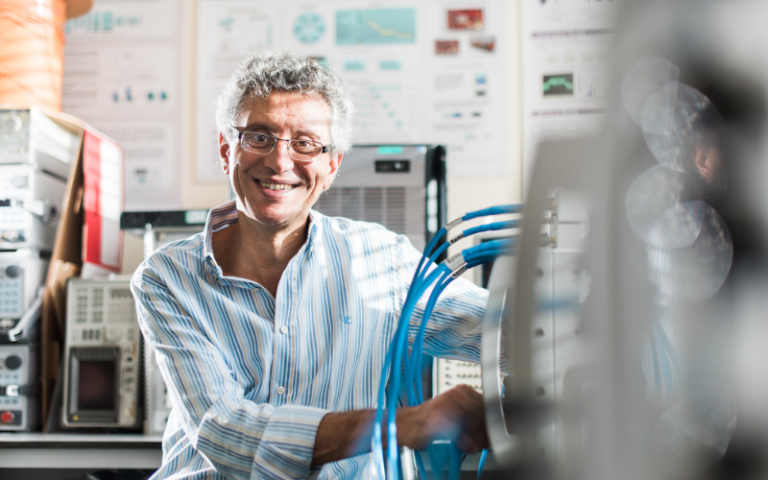ICCS in the Media: ICCS Director featured in the Guardian
1 September 2023
Professor Izzat Darwazeh, ICCS Director and Head of Information and Communication Engineering Group, was recently interviewed by the Guardian in an article discussing the technological advancements needed to improve current mobile infrastructure at large music festivals.

The article, titled “Lost in a crowd: why phone signal is still so scarce at UK music festivals”, discusses how overloaded mobile phone networks is a recurring issue at festivals with large attendance numbers.
If you have ever attended any of the big UK summer festivals, chances are that you may have, at one point or another, struggled to get in touch with your fellow attendees due to poor mobile reception. This universal experience, ubiquitous across festival goers across the UK, persists despite growing advancements in mobile technology.
Professor Darwazeh explains that limited cellular capacity is the primary reason behind these frequent communication breakdowns at music festivals. Mobile networks work on a series of cells that cover specific areas, and each cell operates on a different frequency, and while the capacity per cell can be doubled or tripled, there is a finite limit to how much more they can be increased. He further elaborates that phone connection becomes exponentially weaker the more people gather in one cell due to their bodies absorbing mobile signals. While temporary solutions involve deploying additional masts to high-demand areas, these decisions are often dependent on cost considerations.
While higher-profile festivals like Glastonbury have partnered with official network providers like Vodafone to address this issue, Professor Darwazeh comments: “A little bit of investment from these organisers can guarantee that there is good coverage, but I don’t think there’s much incentive for the mobile operators to do this.”
As 5G technology becomes more widely integrated, Professor Darwazeh remarks that cellular densification, where more cells in an area are covered by one network, may alleviate some of the network strain. The overarching aim lies in dedicating one cell per user, eliminating this issue altogether, but there is still a long way to go before this can be implemented.
 Close
Close

